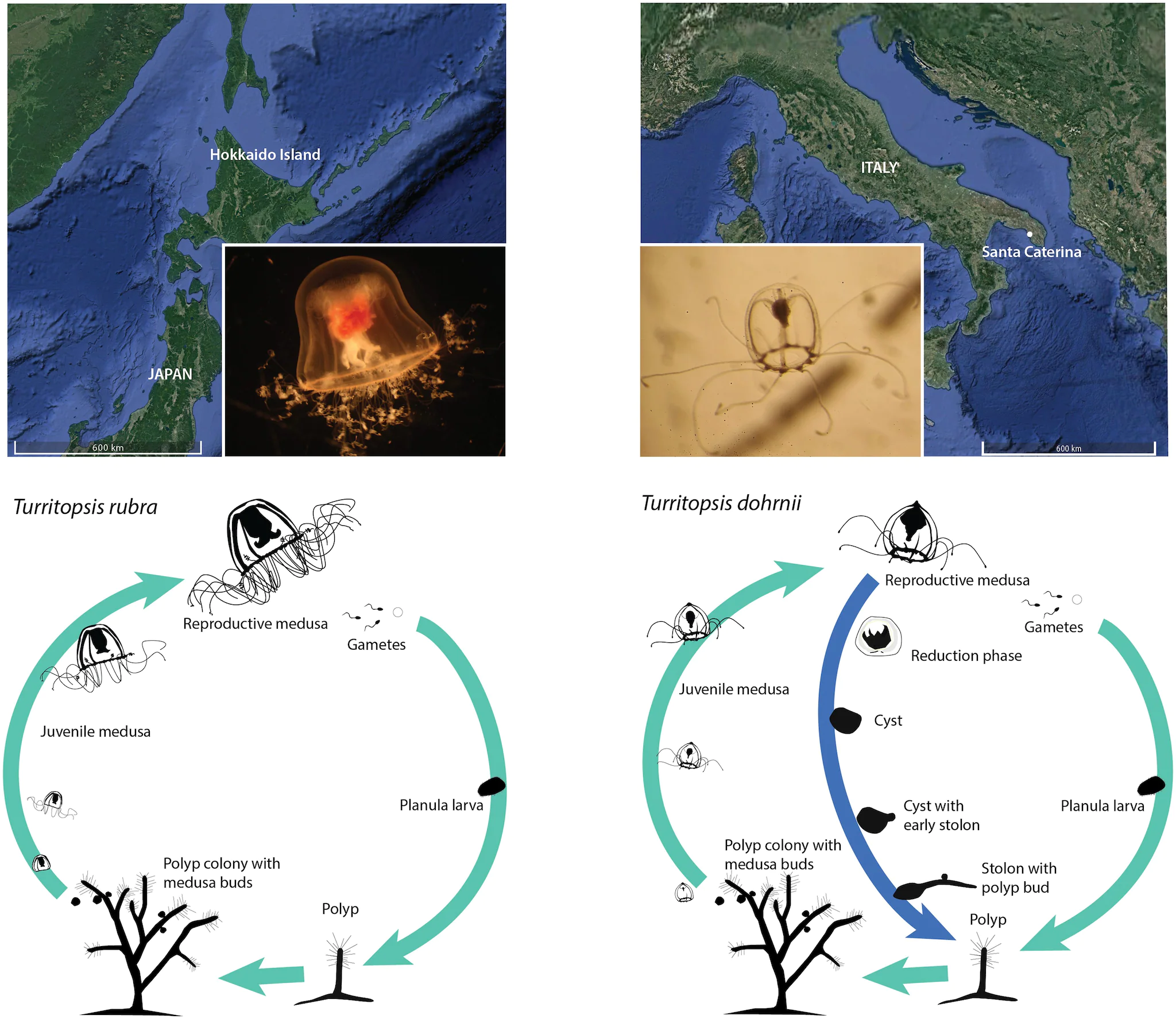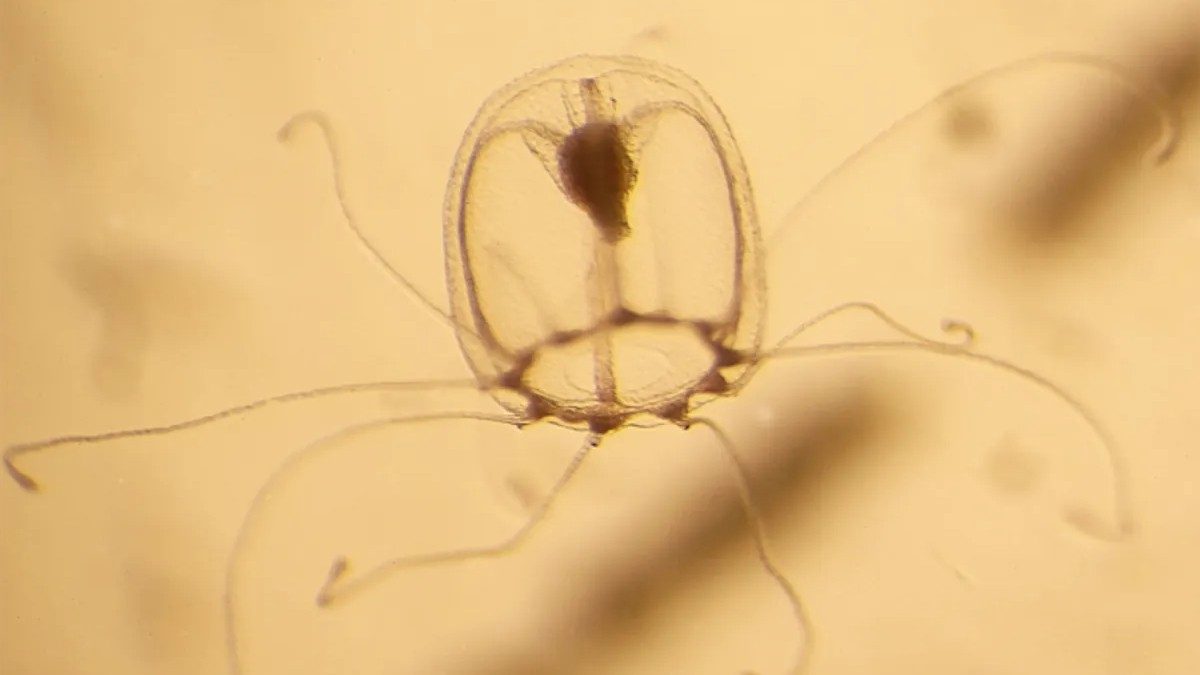The genetic secrets of the immortal jellyfish are revealed: so it can rejuvenate from the adult stage
A Spanish research team has determined how the immortal jellyfish manages to regress to the larval stage from the adult stage.
The genetic secrets of the so-called "immortal jellyfish", and Hydrozoo of the Oceanidae family have the ability to pass from the adult phase to the larval one (the polyp) thanks to a process called transdifferentiation. The animal, scientifically classified under the name of Turritopsis dohrni is the only one known to scientists capable of turning the clock back after reaching sexual maturity and to be able to repeat the cycle indefinitely. Now marine biologists have determined which genetic and molecular "superpowers" allow it to be the only potentially immortal living thing on Earth.
The study was conducted by a Spanish research team led by scientists from the “Ciberonc” University Institute of Oncology and the Asturias Marine Observatory of the Department of Biology of Organisms and Systems of the University of Oviedo. The scientists, coordinated by Professor Maria Pascual-Torner, professor at the Department of Biochemistry and Molecular Biology of the Spanish university, reached their conclusions after comparing the genetic heritage of Turritopsis dohrnii with that of a similar species (Turritopsis red), but not capable of the miracle of regression to the larval stage from a mature one.
Researchers have not found a single genetic factor involved in the transdifferentiation process, but a set of potential molecular and genetic elements that can ensure the jellyfish's cycle of rejuvenation. "We identified gene variants and expansions associated with DNA replication and repair, telomere maintenance, redox environment, stem cell population, and intercellular communication," they wrote in the abstract of the study. Put simply, the immortal jellyfish possesses a peculiar mechanism for repairing DNA and preserving telomere length across mutations which also slows down cell division. In humans and other species, telomere shortening is associated with aging.
Vitamin B12 can slow the progression of ALS to the early stage

Credit: PNAS
Among the most significant details revealed by Professor Pascual-Torner and colleagues is the gene silencing of the pathway known as "Polycomb" and the ability to reactivate pluripotent cells (those able to differentiate into any tissue of the organism) during the regression process to the larval stage.
"Rather than having a single key to rejuvenation and immortality, the various mechanisms analyzed in our study would act synergistically, thus favoring the rejuvenation process of the immortal jellyfish," said the study's lead author. An interesting aspect lies in the fact that the immortal jellyfish is unable to control this process, but is activated automatically when it is in conditions of environmental stress (e.g. unfavorable variations in salinity and water temperature).
Scientists hope to harness the knowledge they have gained about the Turritopsis dohrnii genome to counteract aging diseases and improve longevity and overall human health. But of course, we shouldn't expect rejuvenation like that seen in this special little hydrozoan. “It is a mistake to think that we will reach immortality like this jellyfish because we are not jellyfish,” Professor Pascual-Torner said bluntly. The details of the research "Comparative genomics of mortal and immortal cnidarians unveils novel keys behind rejuvenation" have been published in the authoritative scientific journal PNAS.



